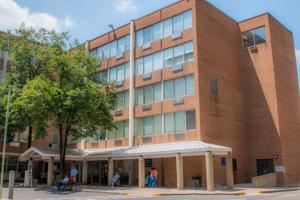Nuestro Centro Cardiovascular ofrece servicios terapéuticos de diagnóstico y tratamiento accesibles y de última generación para una amplia gama de enfermedades y afecciones cardíacas. Además de la atención directa, ofrecemos programas de ejercicio y modificación del estilo de vida supervisados por médicos y medicamentos para ayudar a controlar el riesgo cardiovascular de las personas propensas a las enfermedades cardíacas. Nuestro equipo está comprometido a brindar atención basada en la excelencia, la innovación y la compasión.

BMC Cardiología se ubicó entre los 50 mejores programas del país según U.S. News & World Report
Experiencia líder
Médicos galardonados
Nuestros médicos y cirujanos fueron reconocidos como algunos de los mejores médicos de la ciudad en la lista de "Top Docs" de la revista Boston Magazine.
Centro Nacional de Excelencia
Nuestro Centro de Amiloidosis, de renombre internacional, fue nombrado Centro Nacional de Excelencia para el manejo de pacientes con amiloidosis cardíaca.
Especialidades de alto rendimiento
La cardiología y la cirugía cardíaca fueron reconocidas como de "alto rendimiento" por U.S. News and World Report.
Ubicación y contacto
Centro cardiovascular
De lunes a viernes de 8 a.m. a 5 p.m.
Departamentos y programas relacionados
Centro de arritmias
Cirugía cardíaca
Clínica de Miocardiopatía Hipertrófica
Cardiología preventiva
Centro de Medicina Vascular

Beca de Medicina Cardiovascular
Nuestro programa de formación en medicina cardiovascular general, acreditado por la ACGME, está comprometido con la formación de la próxima generación de líderes en medicina cardiovascular clínica e investigación cardiovascular. Nuestros becarios están expuestos a todo el espectro de paciente hospitalizado y paciente ambulatorio cardiología tanto en Boston Medical Center como en West Roxbury VA Medical Center. Existe una amplia oportunidad para la formación avanzada en imágenes multimodales, insuficiencia cardíaca, cardiología intervencionista y electrofisiología. Además, tenemos la capacidad de proporcionar capacitación en investigación con mentores para permitir que los becarios inicien oportunidades laborales de investigación exitosas en medicina cardiovascular de investigación.


